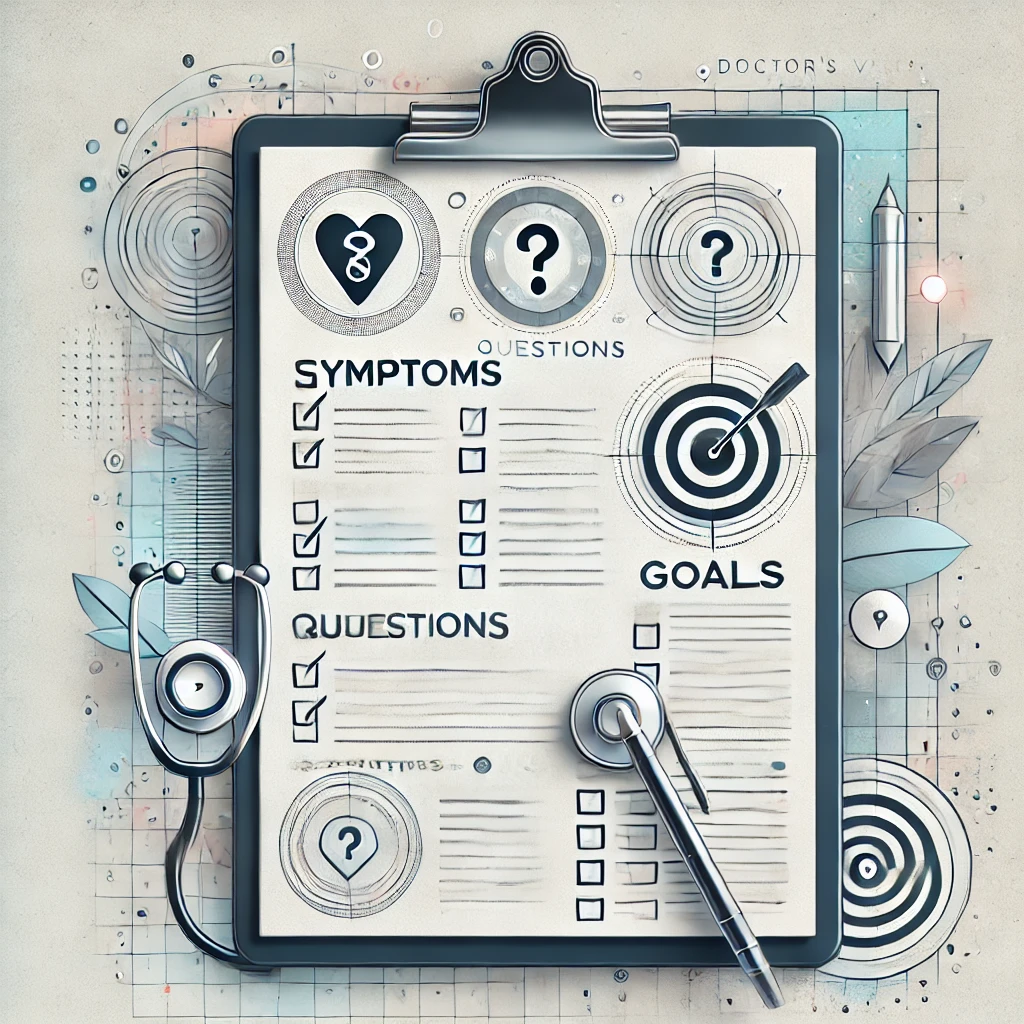10 Simple Strategies to Improve Communication in Healthcare
Ever walked out of a doctor’s office feeling confused or unheard? You’re not alone. Poor communication in healthcare can lead to misdiagnoses, medication errors, and frustration. But here’s the good news—simple strategies can drastically improve communication in healthcare, making your visits more effective and stress-free. Let’s break down how you can take charge of your healthcare conversations and get the answers you need.
Key Takeaways:
- Preparing before your appointment improves communication and ensures you get the answers you need.
- Honesty and transparency with your provider lead to better-tailored care and fewer complications.
- Use patient portals to stay connected, ask questions, and review test results at your convenience.
- Bring an advocate to appointments for extra support and note-taking.
- Practice active listening by repeating back instructions to confirm understanding and avoid errors.
- Follow up with your provider after visits for clarity, updates, or new questions.
Why Improving Communication with Healthcare Providers Matters
Picture this: You’re sitting in the exam room. You’re explaining your symptoms, but your doctor interrupts or seems rushed. Or maybe you’re nodding along while they use medical jargon you don’t understand. Sound familiar?
Now imagine the alternative—your concerns are heard, your questions answered, and your treatment plan is crystal clear. That’s the magic of improving communication with healthcare providers.
When communication flows smoothly, a few things happen:
- Trust builds. You feel heard and valued.
- Better decisions get made. Both you and your provider understand what’s going on.
- Confidence skyrockets. You leave the office knowing exactly what’s next.
It’s not just about you, though. Improving communication with healthcare providers also helps your provider do their job more effectively. Everyone wins.
Strategies to Improve Communication in Healthcare
Effective communication in healthcare isn’t just about talking—it’s about ensuring clarity, reducing errors, and improving patient outcomes. Poor communication leads to misdiagnoses, medication errors, and frustrated patients. So how do you fix it? Let’s dive into some powerful strategies to improve communication in healthcare.
1. Prep Like a Pro: How to Start Improving Communication with Healthcare Providers

The first step in improving communication with healthcare providers? Prepare. Think of it as packing for a trip—you wouldn’t leave without a list, right?
Before your appointment, write down:
- Symptoms. Be specific. Instead of “I feel tired,” try “I’ve been exhausted every morning for the past two weeks, even after 8 hours of sleep.”
- Questions. What do you really need to know? Jot it down so you don’t forget.
- Goals for the visit. Whether it’s a diagnosis, treatment plan, or peace of mind, clarity on what you want helps guide the conversation.
When you walk in prepared, you’ll feel more confident and make it easier for your provider to help you.
Why Updating Your Contact Information at the Doctor’s Office Matters
2. Honesty is Key: Stop Hiding the Truth
This might sound obvious, but here’s a shocker—many people hold back during appointments. Maybe you skipped your meds. Maybe you snuck in a burger on your low-sodium diet. We get it—nobody wants to be judged.
But here’s the thing: improving communication with healthcare providers starts with transparency. Your doctor isn’t there to scold you—they’re there to help. And they can’t do that if they don’t have the full picture.
For example, if you’re experiencing side effects from a medication, don’t just stop taking it. Let your provider know so they can tweak your treatment. Being upfront helps them tailor your care to what you really need.
3. Bring a Health History Cheat Sheet
Ever been asked, “What medications are you taking?” and suddenly forgotten everything, including your name? Yeah, same.
One of the best hacks for improving communication with healthcare providers is bringing a health summary. This should include:
- Current medications (dose and frequency).
- Past surgeries or procedures.
- Allergies.
- Family health history.
It’s like a cheat sheet for your health. Not only does it save time, but it also ensures nothing important slips through the cracks.
4. Questions Are Your Superpower
Here’s a tip: Improving communication with healthcare providers doesn’t mean you just sit and nod. Asking questions is a game-changer.
For example, let’s say your doctor says, “We’re going to prescribe you a statin.” Instead of nodding blankly, ask:
- “What’s a statin?”
- “What are the side effects?”
- “Why do I need this?”
Questions show you’re engaged and help you understand your care better. And trust me, no question is too small or “stupid.” This is your health we’re talking about!
5. Write It Down—or Record It
Ever walked out of a doctor’s office only to think, “Wait…what did they say again?” Yep, happens to the best of us.
A simple fix? Take notes during your appointment—or ask to record it (with your provider’s permission, of course).
For example, if your doctor says, “Take this pill twice a day, 30 minutes before meals,” write it down or repeat it back to them:
- “So, twice a day, 30 minutes before eating?”
It ensures you’ve got it right and gives you something to refer to later.
6. Bring Backup: The Power of a Trusted Advocate
Let’s be real: doctor’s appointments can feel overwhelming. There’s a lot of information being thrown at you in a short amount of time, and if you’re already dealing with a health issue, it can be tough to keep up.
That’s where bringing a trusted advocate—like a friend, partner, or family member—can make all the difference in improving communication with healthcare providers.
Here’s how they can help:
- Take notes. While you’re busy listening or talking, they can jot down details so you don’t miss a thing.
- Ask questions. They might think of something you forgot to bring up.
- Emotional support. Let’s face it, navigating healthcare can be stressful. Sometimes just having someone there makes it easier.
For example, if your provider is discussing a complex treatment plan, your advocate can help you stay focused and clarify any points that seem confusing. Think of them as your healthcare sidekick, always looking out for you.
7. Embrace Technology: Patient Portals Are a Lifesaver
If you’re not using your provider’s patient portal yet, now’s the time to start. These online tools are seriously underrated when it comes to improving communication with healthcare providers.
What’s so great about them?
- You can review test results. Instead of waiting for a call, just log in and see the results for yourself.
- You can ask non-urgent questions. Have a random question pop up at 10 PM? Send a message through the portal.
- You can refill prescriptions. No need to play phone tag with the office.
Let’s say your doctor mentions a lab result during your appointment, but you don’t fully understand it. You can use the patient portal to follow up and ask for more details. It’s like having a direct line to your provider without needing another appointment.
8. Listen Like a Pro: Practice Active Listening
Improving communication with healthcare providers isn’t just about what you say—it’s also about how you listen. And let’s be honest, most of us could use a little practice in the listening department.
When your provider explains something, stay present and really focus on their words. One trick? Repeat back what you heard. For example:
- Provider: “You’ll need to take this medication twice a day with food.”
- You: “So, I take this twice a day, but only with meals—right?”
This technique not only shows you’re paying attention but also confirms you’ve understood the instructions correctly.
Another tip: avoid interrupting. Let your provider finish their thought before jumping in with questions. It’s all about creating a flow that works for both of you.
9. Be Mindful of Their Time (and Yours)
We’ve all been there—sitting in the waiting room forever, only to feel like your provider is rushing through the appointment. While that can be frustrating, respecting your provider’s time is a crucial step in improving communication with healthcare providers.
Here’s how to make the most of the time you have:
- Show up on time. Seems obvious, but running late can throw off the whole vibe of your appointment.
- Prioritize your concerns. Start with the most pressing issue. For example, if you’ve got a laundry list of symptoms, lead with the one that’s most affecting your daily life.
- Keep it concise. While details matter, try to avoid going off on tangents.
If you feel like time is running out and you still have questions, let your provider know. Something as simple as, “I know we’re running short on time, but I have one more quick question,” can make a big difference.

10. Don’t Be a Stranger: Follow Up Like a Boss
The appointment may be over, but improving communication with healthcare providers doesn’t have to stop there. Following up is a great way to stay proactive about your care and ensure nothing falls through the cracks.
For example:
- Think of more questions later? Send a message through the patient portal or give the office a call.
- Need clarification? If your treatment plan is unclear, don’t hesitate to ask for more details.
- Did something change? If your symptoms improve or worsen, let your provider know.
Following up shows you’re engaged and invested in your care—and trust me, providers appreciate that.
Breaking Down Barriers to Communication
Now, let’s talk about the elephant in the room: sometimes, improving communication with healthcare providers feels hard. Maybe you’re intimidated. Maybe there’s a language barrier. Or maybe you feel like your doctor is too busy to listen.
Here’s the truth: advocating for yourself is always worth it. If language is a barrier, ask for an interpreter. If you feel rushed, kindly let your provider know you need a little extra time. These small steps can make a massive difference.
Remember: your healthcare is a partnership. You deserve to feel heard, understood, and empowered.
FAQ: Improving Communication with Healthcare Providers
What are the benefits of improving communication with healthcare providers?
Improving communication with healthcare providers helps build trust, ensures your concerns are heard, and leads to better health outcomes. Clear communication reduces the risk of medical errors, unnecessary treatments, and confusion about care instructions. It also helps you feel more confident, informed, and empowered during your healthcare journey.
How can I prepare for a doctor’s appointment to improve communication?
Preparation is key to improving communication with healthcare providers. Write down your symptoms, questions, and goals for the visit. Be specific about your concerns, like saying, “I’ve had chest pain after meals for a week,” instead of just “I don’t feel well.” This makes your conversation focused and productive.
Why is honesty important when talking to a healthcare provider?
Being honest with your provider is crucial for accurate care. If you leave out details—like skipping medications or experiencing side effects—they might not have the full picture. Transparency ensures your treatment plan is tailored to your needs, helping you avoid complications and receive the best possible care.
What should be included in a health history summary?
A complete health history summary includes your current medications, dosages, past surgeries, allergies, and family medical history. Keeping this information handy saves time during appointments and ensures your provider has all the details they need to make informed decisions about your care.
What types of questions should I ask during a doctor’s appointment?
Ask questions that clarify your treatment plan, diagnosis, or medications. For example: “What are the side effects of this medication?” or “What does this test involve?” Don’t hesitate to ask follow-ups. Asking questions shows engagement and helps you fully understand your care.
Can I bring someone with me to a doctor’s appointment?
Yes! Bringing a trusted advocate, like a family member or friend, is a great way to improve communication with healthcare providers. They can take notes, ask questions you might forget, and provide emotional support—especially if the appointment feels overwhelming or involves a lot of information.
How can patient portals help improve communication with healthcare providers?
Patient portals make improving communication with healthcare providers easier by giving you access to test results, appointment scheduling, and messaging tools. You can ask non-urgent questions, request prescription refills, or follow up after visits—all without needing to make a phone call or extra appointment.
What is active listening, and how does it help during appointments?
Active listening means staying present and focused when your provider explains something. Repeating back what you heard—like saying, “So, I take this twice a day, right?”—ensures you understand instructions correctly. It also shows your provider you’re engaged, making the conversation more effective.
What should I do if I feel rushed during a doctor’s appointment?
If you feel rushed, politely let your provider know you need more time. Start by addressing your most pressing concerns first. Saying something like, “I understand you’re busy, but I have one more quick question” can help ensure your needs are met without feeling ignored.
What should I do if I forget something my doctor said during the appointment?
It’s normal to forget details after an appointment! Take notes during the visit or ask to record the conversation with permission. If you still have questions later, use the patient portal or call the office to follow up. Staying proactive ensures nothing important gets missed.
Final Thoughts
Improving communication in healthcare isn’t just about reducing errors—it’s about creating a patient-centered environment where care is seamless, efficient, and effective. Whether it’s using structured protocols, embracing technology, or fostering a culture of transparency, small changes can lead to significant improvements in patient outcomes.
Ready to Take the Next Step?
By following these strategies, you’re well on your way to improving communication with healthcare providers and taking control of your health journey. What tips are you excited to try? Or maybe you’ve already found some hacks that work wonders for you—let me know in the comments!
